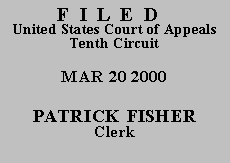

| UNITED STATES OF AMERICA, |
|
| v. | |
| RAYMUNDO JARAMILLO-GARCIA, |
Before, BALDOCK, HENRY and LUCERO, Circuit Judges.
Mr. Jaramillo-Garcia now appeals. Specifically, he contests the sentencing court's imposition of a three-level upward adjustment under USSG §3B1.1(b) for his supervisory role and a two-level upward adjustment under USSG §3C1.1 for obstruction of justice. For the reasons set forth below, we affirm.
I. Enhancement for Supervisory Role.
In order to impose a three-level enhancement under USSG §3B1.1(b), the sentencing court must find by a preponderance of the evidence that Mr. Jaramillo-Garcia managed or supervised a criminal activity which involved five or more participants or was otherwise extensive. See USSG §3B1.1(b); United States v. Wacker, 72 F.3d 1453, 1476 (10th Cir. 1996). A manager or supervisor must possess "decision-making authority or control over a subordinate." United States v. Roberts, 14 F.3d 502, 524 (10th Cir. 1993). We review the district court's findings of fact for clear error, and we give deference to the district court's application of the Sentencing Guidelines to the facts. See Wacker, 72 F.3d at 1476. We review questions of law regarding the application of these guidelines de novo. See id.
We must accept the district court's finding that Mr. Jaramillo-Garcia was a manager or supervisor because that finding is not clearly erroneous. See United States v. Levine, 983 F.2d 165, 168 (10th Cir. 1992). The record supports the finding that Mr. Jaramillo-Garcia "exercised some degree of control" over Ms. Jaramillo. United States v. Reid, 911 F.2d 1456, 1464 (10th Cir.1990) (quoting United States v. Fuller, 897 F.2d 1217, 1220 (1st Cir. 1990)), see also Roberts, 14 F.3d at 524.
Although Mr. Jaramillo-Garcia does not contest the district court's finding that the criminal activity involved five or more participants, he asserts the record does not support the finding that he supervised his wife, co-defendant Ani Lou Jaramillo, during the course of the conspiracy. Mr. Jaramillo-Garcia contends that he did not have a managerial role in the conspiracy, which involved several deliveries of marijuana. Specifically, Mr. Jaramillo-Garcia relies on evidence that: (1) he received approximately the same pay as other participants in the conspiracy, (2) he did not join the conspiracy until after the third delivery of contraband, and (3) there was a statement in the presentence report that Ms. Jaramillo "was responsible for arranging everything." Rec. vol. III, at 12 (Tr. of June 21, 1999 Sentencing Hr'g) (quoting Rec. vol. II ¶ 8). Mr. Jaramillo-Garcia also notes that the jury acquitted him of threatening a witness with the intent to influence or prevent testimony.
We disagree with Mr. Jaramillo-Garcia's contentions. The evidence presented and considered by the district court shows Ms. Jaramillo acted as a drug courier during this and previous instances, transporting marijuana in a van with three other women and eight children. During the instance in question, the van preceded a group of men, which included Mr. Jaramillo-Garcia. Mr. Jaramillo-Garcia helped to load the van and then he directed Ms. Jaramillo and the children to ride in it. Ms. Jaramillo testified that Mr. Jaramillo-Garcia pointed a gun at her several times in front of the children, and also threatened to kill her if she did not cooperate. See Rec. vol. V, at 212-13, 241. Finally, the record indicates that Mr. Jaramillo-Garcia frequently carried Ms. Jaramillo's identification with him, returning it in this instance just before crossing the border into the United States. See id. at 235-36.
We acknowledge that the evidence of Mr. Jaramillo-Garcia's supervisory role is relatively sparse: he did not receive a significantly larger profit than others in the conspiracy, did not provide specific instructions as to the route of the van and did not collect the money or arrange the loads. However, the district court made no clear error when it found that Mr. Jaramillo-Garcia was a manager or supervisor under §3B1.1(b). See United States v. Allemand, 34 F.3d 923, 931 (10th Cir. 1994) (stating that "although the evidence of [defendant's] supervisory role is sparse, we cannot say that the court clearly erred by finding that Thomas was a manager or supervisor under section 3B1.1(b)").
II. Enhancement for Obstruction of Justice
Mr. Jaramillo-Garcia also contends that the district court erred by enhancing his sentence pursuant to USSG §3C1.1. We review the district court's factual determinations concerning an obstruction of justice enhancement for clear error, giving due deference to the district court's application of the guidelines to the facts. See United States v. Hankins, 127 F.3d 932, 934 (10th Cir. 1997). Section 3C1.1 mandates a two-level offense increase "[i]f the defendant willfully obstructed or impeded, or attempted to obstruct or impede, the administration of justice during the investigation, prosecution, or sentencing of the instant offense . . . ." USSG §3C1.1 (1997). This enhancement is warranted for a defendant's conduct which "threaten[s], intimidat[es], or otherwise unlawfully influenc[es] a . . . witness." Id. cmt. n.3(a).
Mr. Jaramillo-Garcia testified at the sentencing hearing that Ms. Jaramillo lied when she testified that he threatened to kill her if she cooperated with the United States in this matter. See Rec. vol. III, at 7. The sentencing court found Ms. Jaramillo's trial testimony credible, however. See id. at 13. Again, we reject Mr. Jaramillo-Garcia's contentions. The district court's determination to enhance Mr. Jaramillo-Garcia's sentence for obstruction of justice was not clearly erroneous.
Accordingly, we AFFIRM the district court's sentencing of Mr. Jaramillo-Garcia.
Entered for the Court,
Robert H. Henry
Circuit Judge
*. This order and judgment is not binding precedent, except under the doctrines of law of the case, res judicata, and collateral estoppel. The court generally disfavors the citation of orders and judgments; nevertheless, an order and judgment may be cited under the terms and conditions of 10th Cir. R. 36.3.